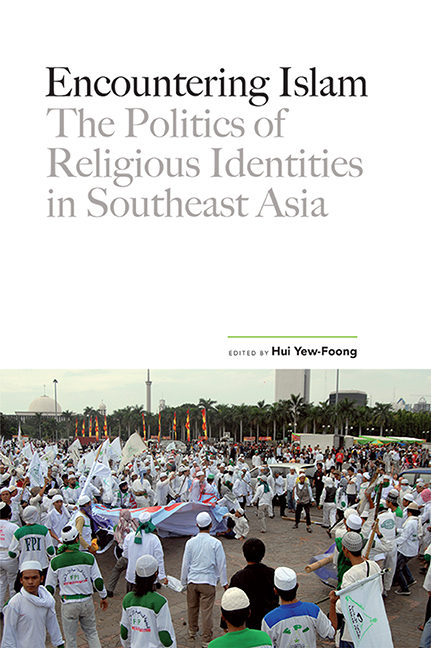Book contents
- Frontmatter
- Contents
- Acknowledgements
- Contributors
- Part I Introduction
- Part II Islam across Borders
- Part III Malaysia
- 5 Legal-Bureaucratic Islam in Malaysia: Homogenizing and Ringfencing the Muslim Subject
- 6 The Letter of the Law and the Reckoning of Justice among Tamils in Malaysia
- 7 Islamization and Ethnicity in Sabah, Malaysia
- Part IV Indonesia
- Part V Muslim Minorities
- Index
5 - Legal-Bureaucratic Islam in Malaysia: Homogenizing and Ringfencing the Muslim Subject
from Part III - Malaysia
Published online by Cambridge University Press: 21 October 2015
- Frontmatter
- Contents
- Acknowledgements
- Contributors
- Part I Introduction
- Part II Islam across Borders
- Part III Malaysia
- 5 Legal-Bureaucratic Islam in Malaysia: Homogenizing and Ringfencing the Muslim Subject
- 6 The Letter of the Law and the Reckoning of Justice among Tamils in Malaysia
- 7 Islamization and Ethnicity in Sabah, Malaysia
- Part IV Indonesia
- Part V Muslim Minorities
- Index
Summary
In Malaysia, the contestation over what was to be the correct and authoritative Islam came to an end sometime in the mid-1990s. The United Malays National Organization (UMNO), the ruling Malay party, had battled the Pan-Malaysian Islamic Party (Parti Islam SeMalaysia, PAS), its rival Malay-Muslim party, over the latter's version of Islam and won. The vanquished also included many other competing nonstate Islamic movements. For example, the most powerful Islamic youth movement, the Angkatan Belia Islam Malaysia (ABIM) was inducted into the mainstream with the co-optation of Anwar Ibrahim into UMNO in 1982 (Hussin Mutalib 1993). The Sufi-inspired communal sect, the Darul Arqam, was no less influential than ABIM in attracting scores of followers. But in 1994 it was banned on charges of being a deviant stream of Islam (by the state fatwa councils) and a security threat by the government (Ahmad Fauzi 2003).
When the dust of some of the above episodes had settled, UMNO seemed quite set in having the upper hand in determining the Islamic agenda or at least controlling it from falling into the hands of othE0072 contenders. By the late 1990s the UMNO-led state paved a trail for Islam to be absorbed into lawmaking and policymaking and institutionalized it as a wide-reaching state apparatus (Norhashimah 1996; Hamayotsu 2003). While UMNO as a political party was more concerned that this exercise would continue to give the party its legitimacy over the Malay-Muslim constituency, there were other dynamics which were created as well.
UMNO's calculated and expedient manoeuvre had led it to institutionalize Islam within the legal-bureaucratic sphere, exclusive only to the Muslim citizenry, and did not purportedly touch the affairs of non-Muslims. But rather than reform the party internally to imbibe Islamic values and ideologies, UMNO, as the major party within the ruling coalition, preferred to Islamize state institutions, rather than change the party to reflect this new orientation.
- Type
- Chapter
- Information
- Encountering IslamThe Politics of Religious Identities in Southeast Asia, pp. 103 - 132Publisher: ISEAS–Yusof Ishak InstitutePrint publication year: 2012

